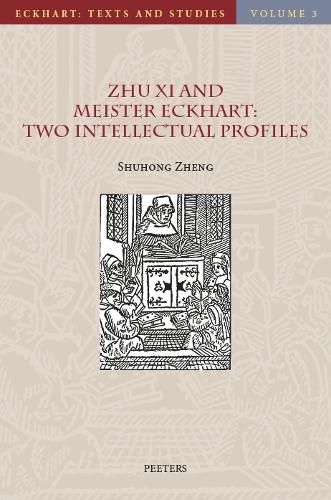Readings Newsletter
Become a Readings Member to make your shopping experience even easier.
Sign in or sign up for free!
You’re not far away from qualifying for FREE standard shipping within Australia
You’ve qualified for FREE standard shipping within Australia
The cart is loading…






This book attempts a comparative study between Zhu Xi (1130-1200), a
Neo-Confucian master of the Song dynasty in China, and Meister Eckhart
(1260-1328), a scholastic and mystic in the medieval West. With a focus
on the theme of human intellect as presented in the works of the two
thinkers, this study also explores the massive hermeneutical framework
in which that concept is unfolded in Zhu Xi and in Eckhart. Thus, the
complexity of each thinker’s understanding of the human intellect is
demonstrated in its own context, and the common themes between them are
discussed in their own terms. Based on a systematic study of the
original texts, the comparison between Zhu Xi and Meister Eckhart goes
much deeper than a general dialogue between East and West. The
comparative model of this book, based strictly on textual study, aims to
develop an in-depth communication between a scholastic Confucian mind
and his equally sophisticated counterpart in Christendom, in the hope
that the intellectual brilliance and spiritual splendour of one thinker
will be illuminated by the light of the other. Probably only when one
encounters a like-minded counterpart brought up in a totally different
tradition will such a mutual illumination become meaningful.
$9.00 standard shipping within Australia
FREE standard shipping within Australia for orders over $100.00
Express & International shipping calculated at checkout
This book attempts a comparative study between Zhu Xi (1130-1200), a
Neo-Confucian master of the Song dynasty in China, and Meister Eckhart
(1260-1328), a scholastic and mystic in the medieval West. With a focus
on the theme of human intellect as presented in the works of the two
thinkers, this study also explores the massive hermeneutical framework
in which that concept is unfolded in Zhu Xi and in Eckhart. Thus, the
complexity of each thinker’s understanding of the human intellect is
demonstrated in its own context, and the common themes between them are
discussed in their own terms. Based on a systematic study of the
original texts, the comparison between Zhu Xi and Meister Eckhart goes
much deeper than a general dialogue between East and West. The
comparative model of this book, based strictly on textual study, aims to
develop an in-depth communication between a scholastic Confucian mind
and his equally sophisticated counterpart in Christendom, in the hope
that the intellectual brilliance and spiritual splendour of one thinker
will be illuminated by the light of the other. Probably only when one
encounters a like-minded counterpart brought up in a totally different
tradition will such a mutual illumination become meaningful.